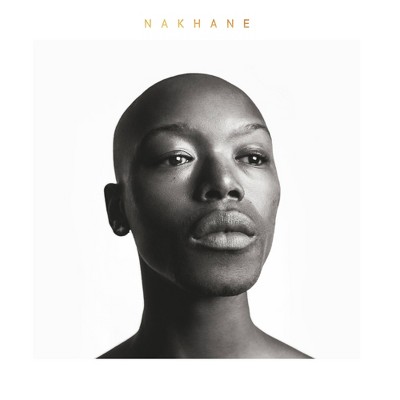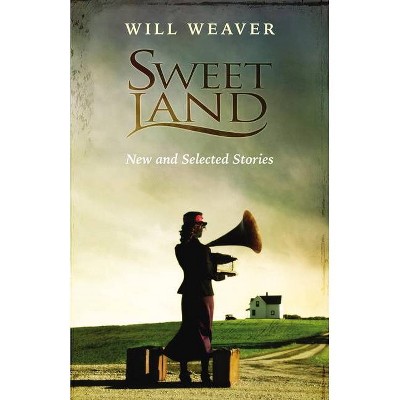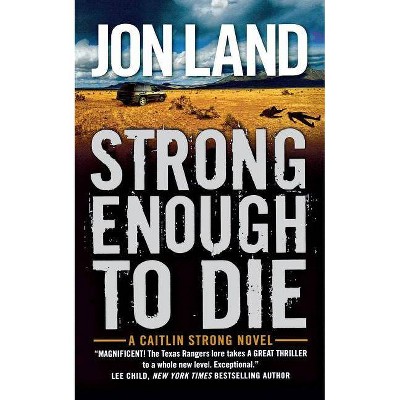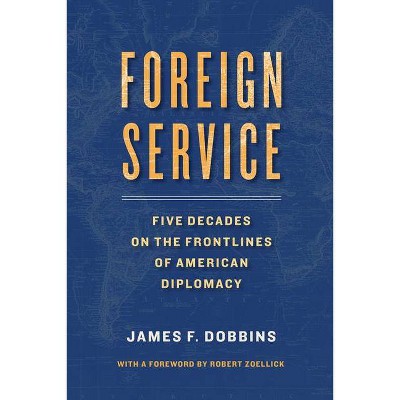I Will Die in a Foreign Land - by Kalani Pickhart (Hardcover)
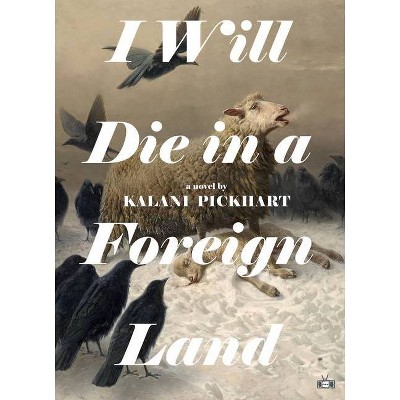
Similar Products
Products of same category from the store
AllProduct info
<p/><br></br><p><b> Book Synopsis </b></p></br></br><p><strong>An ABA Indie Next List pick for November 2021.<br>A debut that is as thoughtful as it is explosive. --<em>BuzzFeed</em><br>Innovative, emotionally resonant, and deeply affecting. --<em>Kirkus</em>, Starred<br>It's a stunner. --<em>Publishers Weekly</em>, Starred</strong></p><p>In 1913, a Russian ballet incited a riot in Paris at the new Théâtre de Champs-Elysées. "Only a Russian could do that, says Aleksandr Ivanovich. "Only a Russian could make the whole world go mad."</p><p>A century later, in November 2013, thousands of Ukrainian citizens gathered at Independence Square in Kyiv to protest then-President Yanukovych's failure to sign a referendum with the European Union, opting instead to forge a closer alliance with President Vladimir Putin and Russia. The peaceful protests turned violent when military police shot live ammunition into the crowd, killing over a hundred civilians.</p><p><i>I Will Die in a Foreign Land</i> follows four individuals over the course of a volatile Ukrainian winter, as their lives are forever changed by the Euromaidan protests. Katya is an Ukrainian-American doctor stationed at a makeshift medical clinic in St. Michael's Monastery; Misha is an engineer originally from Pripyat, who has lived in Kyiv since his wife's death; Slava is a fiery young activist whose past hardships steel her determination in the face of persecution; and Aleksandr Ivanovich, a former KGB agent, who climbs atop a burned-out police bus at Independence Square and plays the piano.</p><p>As Katya, Misha, Slava, and Aleksandr's lives become intertwined, they each seek their own solace during an especially tumultuous and violent period. The story is also told by a chorus of voices that incorporates folklore and narrates a turbulent Slavic history.</p><p>While unfolding an especially moving story of quiet beauty and love in a time of terror, <i>I Will Die in a Foreign Land</i> is an ambitious, intimate, and haunting portrait of human perseverance and empathy.</p><p/><br></br><p><b> Review Quotes </b></p></br></br><br><p><em><br>^ Author photo by Sydney Cisco.</em></p><p><strong><em>I Will Die in a Foreign Land</em> is an ABA Indie Next List pick for November 2021!</strong><br>"Camera-eye perspective of the Ukraine Euromaidan protests -- if John Dos Passos and John Reed joined Pussy Riot -- rich, variegated characters, tense plot. A must read for anyone inclined toward world literature."<br><strong>--ABA Indie Next List: Conor Hultman, Square Books (Oxford, MS)</strong><br></p><p>A debut that is as thoughtful as it is explosive.<br><strong>--Wendy J. Fox, <em>BuzzFeed</em></strong></p><p>This novel spans a whole century, starting in 1913 with a ballet that starts a riot and picking up in 2013--which, TBH, feels like it was a hundred years from now. It's told from multiple perspectives and points in history, giving you a fully immersive experience that's perfect for a winter read.<br><strong>--Adrianna Freedman & Leah Marilla Thomas, <em>Cosmopolitan</em>, Best Historical Fiction Novels of 2021</strong></p><p>I'd sure like to be a part of the decision-making process for the Pulitzer or the National Book Award right now. If I had any say in it, <em>I Will Die in a Foreign Land</em> by Kalani Pickhart would win. I don't say that lightly... The exploration of love and its many complicated facets is the driving force of <em>I Will Die In a Foreign Land</em>. The inciting incident is the protest and the desire for human rights and dignity inherent in that action, but I'd argue the real gem of the story is love. This may sound trite, but it's not--at least not in Pickhart's deft writerly hands.<br><strong>--Mandy Shunnarah, <em>Hot Off the Shelf</em></strong></p><p>Pickhart's characters are alive. You can almost touch them and hear their unique voices. She perfectly fleshes out the individuality of the major characters and those around them with such precision that no one speaks or thinks the same. The movements and decisions of the characters follow real events of the times, making the novel appear like a documentary. By doing this she captures the reader's interest, and a chronology of important events is listed in the book to help us better understand the flow of the narrative.<br><strong>--Eunice Barbara Novio, <em>Litro </em></strong></p><p>What author Kalani Pickhart has achieved is a novel that is at once tragic and beautiful. Taking a variety of mediums, from non-linear storytelling, newspaper accounts, and ancient Ukranian folk songs, at times it seems the novel's main protagonist is [Ukraine] and the characters are simply there to flesh out this complex region of the world... <em>I Will Die in a Foreign Land</em> is simply breathtaking in its scope. Pickhart's storytelling is flawless with nothing gratuitous or superfluous. She has taken a large, complex subject and rendered it both tragic and tender by reminding the reader that in the end, the individual life touched by conflict is what really matters.<br><strong>--Cynthia A. Graham, <em>New York Journal of Books</em></strong></p><p>The risk in war and revolution is that human kindness will be extinguished forever, but Kalani Pickhart shows the ways that our loves affect us more deeply and permanently than the ever shifting forces of history. This makes a political struggle that might be a bit confusing for western readers much more accessible--we all know what it's like to experience love and loss. It also personalizes the conflict. After all, why do we fight, if not to avoid burying the ones we love?<br><strong>--Rufus Hickok, <em>Ordinary Times</em></strong></p><p>The book is gripping, the stories of the characters wrap around each other like vines, and around the reader--choking and pulling them through. Pickhart uses the device of the <em>Kobzari</em> folk singers whose lyrics function like a Greek chorus, weaving together the pain of the individual characters and placing it in a broader cultural context.<br><strong>--Katya Apekina, <em>Electric Literature</em>, from an interview with author Kalani Pickhart</strong></p><p>Blending folklore, journalism, and a quartet of interwoven narratives, Kalani Pickhart's debut novel, <em> I Will Die in a Foreign Land</em>, takes place during the 2013-14 Ukrainian Revolution amidst a wave of winter protests. Set in Kyiv at the heart of the civil unrest, the novel is orchestral and electrifying, with its main characters--Katya, Misha, Slava, and Aleksandr--orbiting around its central location.<br><strong>--Aram Mrjoian, <em>Chicago Review of Books</em></strong></p><p>Set in Ukraine during a pivotal winter, Pickhart follows four individuals during the Euromaidan protests. The four cannot be more different, but they are united by the same desires to survive and make something of themselves. While expansive, this is an intimate portrait of the human condition, proving that even in the darkness, there is hope.<br><strong>--Adam Vitcavage, <em>Debutiful</em>, Six Debut Books You Should Read This October</strong></p><p>The sort of ambitious debut novel that makes you sit up and take notice, Kalani Pickhart's sprawling and rambunctious portrait of the 2013 Ukrainian protests that led to the killing of over a hundred civilians announces an exciting new voice in fiction. Unfolding with the assurance and daring of a much more seasoned writer, <em>I Will Die in a Foreign Land</em> will appeal to readers of history and tragedy alike.<br><strong>--<em>The Chicago Review of Books</em>, 12 Must-Read Books of October</strong></p><p>In Pickhart's debut, which is set during the 2014 Ukrainian Revolution, four people's lives overlap, intersect, and irrevocably change in the face of personal, political, and historical turmoil.<strong><br>--Carolyn Quimby, <em>The Millions</em>, The Millions Most Anticipated (October)</strong></p><p>In Pickhart's ardent, sprawling debut, a set of memorable characters attempt to lay bare the truths of recent conflicts in the Ukraine... This bighearted novel generously portrays the unforgettable set of characters through their determination to face oppression. It's a stunner.<strong><br>--<em>Publishers Weekly</em>, Starred review</strong></p><p>The lives of four people intersect during the 2014 Ukrainian Revolution... Innovative, emotionally resonant, and deeply affecting, this is a more-than-promising debut from a very talented writer.<br><strong>--<em>Kirkus</em>, Starred review</strong></p><p>In this sweeping debut novel, readers are transported inside the 2013-14 Ukrainian battle to maintain independence under pro-Russian President Viktor Yanukovych.... an unforgettable reading experience and a critical lesson in ongoing global history.<br><strong>--Courtney Eathorne, <em>Booklist</em></strong></p><p>The historical novel <em>I Will Die in a Foreign Land</em> is a love letter to Ukraine, its people, and its ability to rise up from piled catastrophes.<br><strong>--Eileen Gonzalez, <em>Foreword</em></strong></p><p>Protests that sparked the 2014 revolution in Ukraine provide the context for Pickhart's dazzling debut novel. Drawing from the folkloric oral history of Ukraine and fusing it with the reporting from journalists, Pickhart focuses on a quartet of characters at the center of a Kyiv protest against the president in which more than 100 people were massacred. Pickhart fully develops these intersecting characters, from an American doctor to a former KGB spy, deftly changing points of view, all of which is enhanced by a chorus of past Ukrainian singers killed by a Russian czar.<br><strong>--<em>The National Book Review</em></strong></p><p>Love triangles, grieving parents, sex trafficking, the KGB, Chernobyl, the Euromaidan protests--<em>I Will Die in a Foreign Land</em> has it all. This bold, intricate novel is as rich and complex as the Ukrainian history it describes with such precision and longing. In spite of their unspeakable personal and political tragedies, the people in this book will fill you with hope for a better world long after you turn the last page.<br><strong>--Maria Kuznetsova, author of <em>Oksana, Behave!</em> and <em>Something Unbelievable</em></strong></p><p>"<em>I Will Die in a Foreign Land</em> is an antidote to safe or insular fiction. Kalani Pickhart casts her gaze both outward and inward, to decades of fractious history and the ways loss marks the human heart. How does a person, or a nation, endure and transform? The novel asks big questions and offers up answers written with an unerring sense of character and astonishingly beautiful language."<br /><strong>--Caitlin Horrocks, author of <em>Life Among the Terranauts</em>, <em>This Is Not Your City</em>, and <em>The Vexations</em></strong></p><p>Kalani Pickhart's <i>I Will Die in a Foreign Land</em></i> hums with the intensity of a live wire. Told in intertwining strands of folklore, history, audio recordings, story, and song, the novel offers a complicated and often brutal portrait of Ukraine's recent past. An innovative and electric debut: Pickhart writes with vividness, empathy, and unforgettable insight.<br><strong>--Allegra Hyde, author of Eleutheria and <em>Of This New World</em></strong></p><p><i>I Will Die in a Foreign Land</i> beautifully illustrates the palimpsest of history, both on the global scale, as old wars give way to new, and the personal, as old loves give way to new. This novel perfectly captures the tragedy and romance of those willing to die for their beliefs.<br><strong>--Ayşe Papatya Bucak, author of <i>The Trojan War Museum</i></strong></p><p>Beseeching and beautiful, <i><em> I Will Die in a Foreign Land</em></i> is an ode to the inescapable difficulty of being both an individual and a citizen of the world. Rich with grief, folklore, and political will, Kalani Pickhart has written a novel of such intricacy that each moment expands and contracts to encompass more than time itself allows. It moved me deeply.<strong><br></strong><strong>--Adrienne Celt, author of</strong><i><em><strong> Invitation to a Bonfire, The Daughter</strong></em></i><strong>s, and the forthcoming</strong><i><em><strong> End of the World House</strong></em></i></p><p>Kalani Pickhart's <em>I Will Die in a Foreign Land</em> is of the best kind of protest novels: one that makes you cry, and then makes you mad as hell. It is so far the best artistic treatment of the Euromaidan and Crimean situation, at turns tense, melancholy, and over-abundantly compassionate. This book is both the napalm and the bandages in one.<br><strong>--Conor Hultman, Square Books (Oxford, MS)</strong></p><p>Kyiv, Ukraine, 2013. Katya, Misha, Slava, and Alexsandr Ivanovich all orbit around a makeshift medical clinic at the center of violent protests in debut author Kalani Pickhart's<em> I Will Die in a Foreign Land</em>. This book illuminated much about the period for me, and it did so because I was so thoroughly invested in its compelling characters. How Pickhart manages to construct such a solid and compelling story amid the chaos of the events portrayed (and even incorporates Slavic history and folklore) is unfathomable to me, but she does. You will care about these characters, you will agonize with them over the choices they are forced to make, and you will put this book down, haunted and grieving, but also inspired.<br><strong>--Lisa Swayze, Buffalo Street Books (Ithaca, NY)</strong></p><p>In a powerful rendition of Ukraine's troubled past and recent events Kalani Pickhart draws readers into the lives of characters who converge around the 2013 violent repression of demonstrations in Kyiv... With a fresh, bold narrative style that joins reportage and deep character study, Pickhart delivers a series of provocative set pieces that underscore the weight of historical memory and the toll of Russian domination. An eye-opening novel by a stunningly talented writer.<br><strong>--Lori Feathers, Interabang Books (Dallas, TX)</strong></p><p>Set in motion by the Ukrainian Revolution of 2014 and a particular demonstration in Kyiv, Pickhart's debut novel weaves its way through the lives of four main characters: Katya, an American doctor who has fled the US and her failing marriage to treat wounded protesters in a converted monastery; Aleksandr, a pianist and former Soviet agent who is suffering from a potentially fatal injury; Misha, a widower and an engineer who is searching for his friend, fellow protester, and erstwhile lover, Slava, an activist. As the narrative unfolds, we see how each of the characters, major and minor, are held in a web, every action or inaction rippling throughout.<br><strong>--10/19/2021 newsletter, Longfellow Books, Portland, ME</strong></p><p>I must admit, I was a bit intimidated by Kalani Pickhart's debut novel, <em> I Will Die in a Foreign Land</em>. I've not read a lot of books about Ukraine, their recent political struggle, and the people who have fought for their home--plus, I just thought it might be devastatingly sad. And of course, it is sad, but more than that, it's absolutely beautiful and clings to hope so desperately that I was left feeling optimism for the characters that people the novel and for Ukraine itself. Pickhart weaves together the history of Ukraine with the stories of four citizens who have come to the Maidan to fight for the country they love. They move in and out of each other's stories in such a lovely way; Pickhart's writing is quiet, understated, and unexpected. I can't wait to read more from her.<br><strong>--Margaret Leonard, Dotters Books (Eau Claire, WI)</strong></p><b>BOOK CLUB & READER GUIDE: Questions and Topics for Discussion</b></p><p>1. This is a novel of historical fiction that largely focuses on the 2013-2014 Ukrainian revolution, but it also dives deeply into the history of the people, country, and region. What are some things that you learned about Ukraine and its history that you did not previously know?</p><p>2. The author chose to title the novel <em>I Will Die in a Foreign Land</em>: why do you think this is fitting? Which characters literally leave their homeland? What deeper meanings can you draw, considering the ancient and modern Slavic history that is sprinkled throughout the book?</p><p>3. The novel is comprised of multiple main narratives, spanning different periods of time, that are braided together along with frequent asides featuring folklore, history, and news related to Ukraine: what effect did this structure have on your reading experience? How do the asides add value to the main narratives and plot?</p><p>4. The four main characters of the novel are Aleksandr, Katya, Misha, and Slava: what are each of their backstories? In what ways do their lives intersect?</p><p>5. "<strong>The father begets the daughter--the lion begets the lion</strong>." (p. 198) How is this line, from Salva's reunion with her father, fitting for larger themes of the story? What do you make of the recurring references to lions, cats, and kittens?</p><p>6. What role do cassette tapes play in this story? Which characters recorded them and which listened to them? How do the tapes connect the different characters of this braided novel?</p><p>7. Upon arriving to the chaos in Kyiv, Katya thinks: "<strong>We're all under water here... Shaken loose like silt. An undertow. A baptism. A drowning</strong>." (p. 13) Throughout the novel, Katya's descriptions and analogies continue to involve themes of water: what do you make of this?</p><p>8. Throughout this novel, the author chose to prominently feature Russian composer Igor Stravinsky's ballet <em>The Rite of Spring: Pictures from Pagan Russia in Two Parts</em>, whose music and choreography so challenged its audience that a riot broke out during its 1913 premiere in Paris. The ballet's plot revolves around ancient Slavic pagans performing a ritual to ensure the coming of a new spring. Stravinsky is also quoted as saying: "<strong>My earliest memory is of the sound of the ice breaking on the River Neva in St. Petersburg near where I was born. It was the sound that marked the beginning of a new year, a new spring</strong>." (p. 118) How do you interpret the importance of that is given to the theme of a new spring in this novel?</p><p>9. Of the ballet, Aleksandr says: "<strong>The pagans in <em>The Rite of Spring</em> sacrifice a woman, the Chosen One, so they might survive as a tribe. I wonder about this often--the individual loss for the collective gain</strong>." (p. 192) How does this idea relate to the novel's themes? Can you think of various examples of who or what is "sacrificed" in this book in a way that benefits others?</p><p>10. While describing who the <em>Kobzari</em> are to young Aleksandr circa the 1950s, the old piano man says to him: "<strong>Music, Aleksandr. It is a powerful, dangerous thing... We must do all we can to protect it</strong>." (p. 47) Who are the <em>Kobzari</em>? Why did the older Russian man think music was dangerous? What effect did the old piano man's teachings have on Aleksandr? What importance does music have to specific characters, and to the novel in general?</p><p>11. The old piano man also teaches young Aleksandr that "<strong>In Soviet times, it was dangerous to believe in God</strong>" (p. 49), referring to the Communist Party of the Soviet Union's often violent suppression of religious beliefs, in favor of atheism. How are ideas of religious freedom explored in this novel?</p><p>12. Misha's mother tells Katya: "<strong>We come from <em>Kozak</em> blood, my dear. Misha's ancestors were all <em>Kozak</em>, both sides. He's been waiting for war his whole life without knowing</strong>." (p. 184) Who are the <em>Kozaks</em> (AKA Cossacks)? How does this statement relate to the larger themes in the novel of war and conflict in this region? What is Misha's fate?</p><p>13. Through the character of Dascha Bandura--a journalist who has been living in eastern Ukraine's Luhansk, near the border with Russia in the disputed Donbass region--we are able to see both sides of the recent and ongoing conflict between Ukraine and Russia: what are Dascha's views on the conflict?</p><p>14. How are the roles of, and risks to, journalists who are covering the Ukrainian Revolution illustrated through the character of Dascha Bandura? What is her fate? How else are journalists and others who are documenting the conflict in Ukraine depicted?</p><p>15. Dascha, a self-described lesbian filmmaker, says to her lover Slava, who was involved in FEMEN--the radical protest group for women's rights before they moved from Ukraine to France: "<strong>Today, we fight against Putin. Tomorrow, we fight against hate</strong>." (p. 116) What do you think about this conclusion of Dascha's, that for a country experiencing civil unrest and war, the goal of working toward equal rights must wait? What are some of the ways in which this novel explores issues of human rights, homophobia, and the abuse of girls and women?</p><p>16. How is the Chernobyl Nuclear Power Plant disaster and its consequences explored through the characters of Misha and Vera, and Misha's mom, who is a <em>samosely</em>?</p><p>17. In what ways does the author include information about the <em>Holodomor</em>--the intentional famine orchestrated by Joseph Stalin that killed millions of Ukrainians by starvation in 1932-1933?</p><p>18. In Donetsk, eastern Ukraine, where Misha works as an engineer in the coal mines, he is persistently offered a special job by his manager, Oleg. Why is Misha conflicted over this offer, and what does he ultimately decide to do? Why do you think it was important to the author to include illegal coal mines, or <em>kopanky</em>, in the book?</p><p>19. Aleksandr's audio cassette recording sections begin with him as a young Soviet soldier arriving in Czechoslovakia to suppress the liberalization reforms known as the Prague Spring. What did Aleksandr think of his role? What echoes are there between the Prague Spring and the Euromaidan protests?</p><p>20. Aleksandr returns to Czechoslovakia again, this time as a KGB spy named Stepan. What is his mission and how does he feel about it? What has changed for him since the last time he was in Prague?</p><p>21. Arrange this list of character names on a white board or large background paper with arrows and words explaining the various connections and relationships: <br> Adam<br> Aleksandr Arkadyevich Ivanovich (AKA Sasha, Stepan)<br> Alexis<br> Anna<br> Anna Arkadyevna Ivanova<br> Dascha Bandura<br> Jara (Jarmila) Kučerova<br> Katya (Ekaterina)<br> Misha (Mikhail) Tkachenko<br> Nedezdha (Nadia) Stepaneva Vasilieva<br> Petyr<br> Slava (Yaroslava) Orlyk<br> Vera<br> Zoya</p><br>
Price History
Price Archive shows prices from various stores, lets you see history and find the cheapest. There is no actual sale on the website. For all support, inquiry and suggestion messages communication@pricearchive.us



